News and Announcements

- January 09, 2026
TKN presented two tutorial lectures at the IEEE Consumer Communications and Networking Conference (CCNC 2026), which was held in Las Vegas, NV.
Doğanalp Ergenç and Nurefşan Sertbaş Bülbül talked about IEEE 802.1 Time-Sensitive Networking Beyond Theory: Convergence, Resilience, and Practical Insights.
In parallel, Falko Dressler and Onur Altintas talked about Cooperative Computing and AI on Cars using 6G Virtualized Edge Computing.
- January 09, 2026
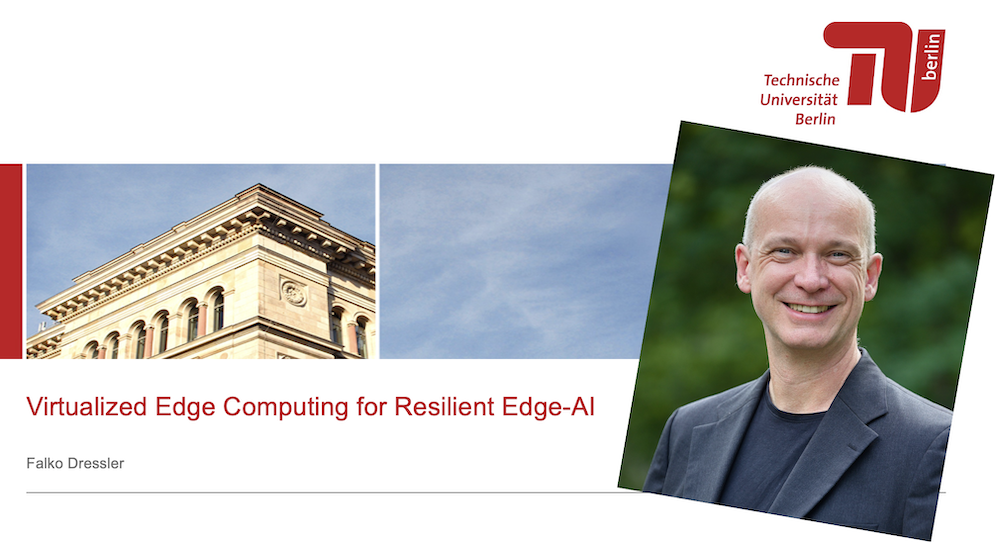
Falko Dressler gave a keynote titled Virtualized Edge Computing for Resilient Edge-AI at the 1st International Workshop on AI-Native Connected Mobility (ACM 2026), which was held in Las Vegas, NV.
(link to more information)
- January 05, 2026
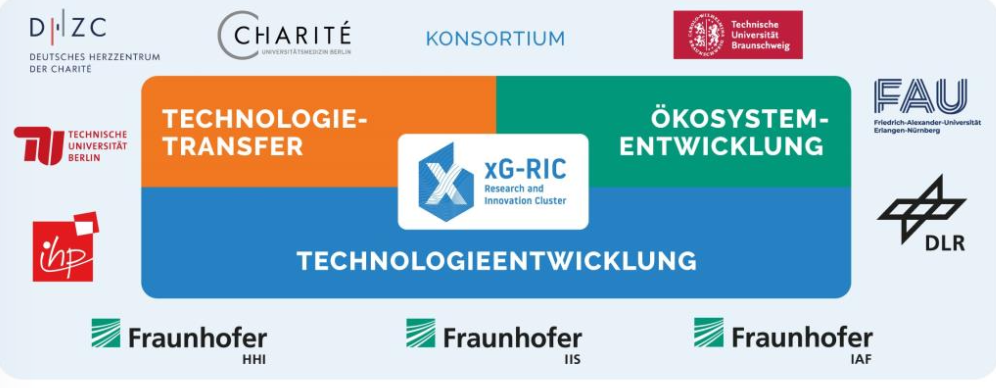
We are happy to be part of the xG Research and Innovation Cluster (xG-RIC).
In this project, we will explore AI-native ORAN solutions, channel prediction techniques, the use of intelligent reflective surfaces, and advanced edge computing.
(link to more information)
- December 30, 2025
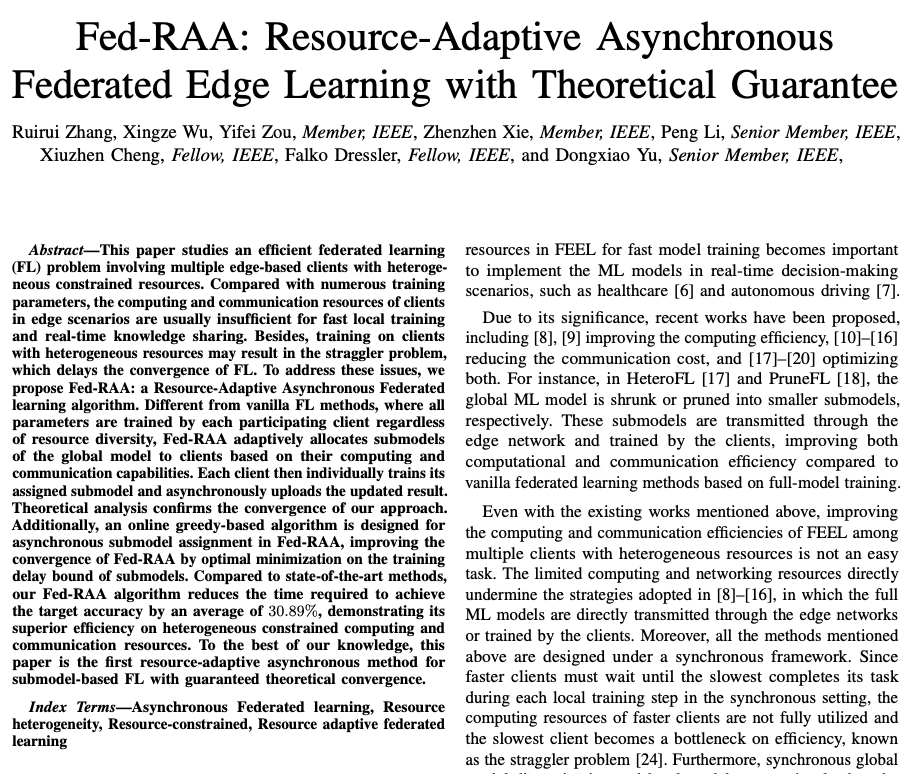
Our article Fed-RAA: Resource-Adaptive Asynchronous Federated Edge Learning with Theoretical Guarantee has been accepted for publication in IEEE Transactions on Mobile Computing.
This paper studies an efficient federated learning (FL) problem involving multiple edge-based clients with heterogeneous constrained resources. Compared with numerous training parameters, the computing and communication resources of clients in edge scenarios are usually insufficient for fast local training and real-time knowledge sharing. Besides, training on clients with heterogeneous resources may result in the straggler problem, which delays the convergence of FL. To address these issues, we propose Fed-RAA: a Resource-Adaptive Asynchronous Federated learning algorithm. Different from vanilla FL methods, where all parameters are trained by each participating client regardless of resource diversity, Fed-RAA adaptively allocates submodels of the global model to clients based on their computing and communication capabilities. Each client then individually trains its assigned submodel and asynchronously uploads the updated result. Theoretical analysis confirms the convergence of our approach. Additionally, an online greedy-based algorithm is designed for asynchronous submodel assignment in Fed-RAA, improving the convergence of Fed-RAA by optimal minimization on the training delay bound of submodels. Compared to state-of-the-art methods, our Fed-RAA algorithm reduces the time required to achieve the target accuracy by an average of 30.89%, demonstrating its superior efficiency on heterogeneous constrained computing and communication resources. To the best of our knowledge, this paper is the first resource-adaptive asynchronous method for submodel-based FL with guaranteed theoretical convergence.
(link to more information)
- December 16, 2025
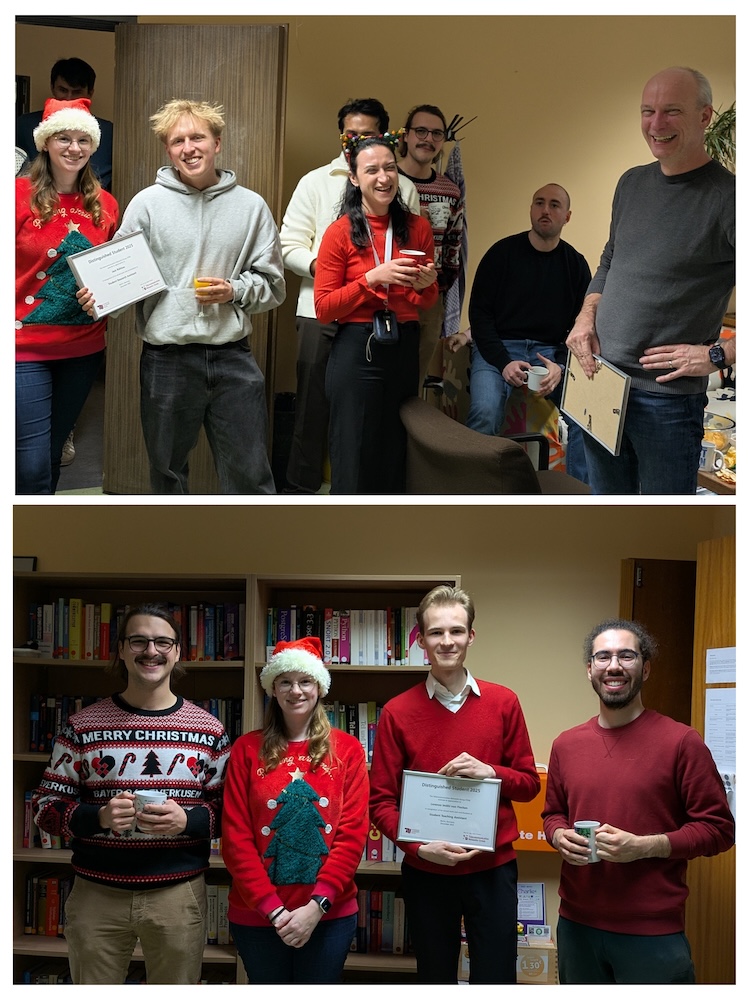
We congratulate Jakob Rühlow and Lorenzo Imöhl von Flocken for receiving this year's Distinguished Student award at TKN! With the the award, we recognize their valued work and contributions as Student Research Assistant and Student Teaching Assistant, respectively.
- December 16, 2025
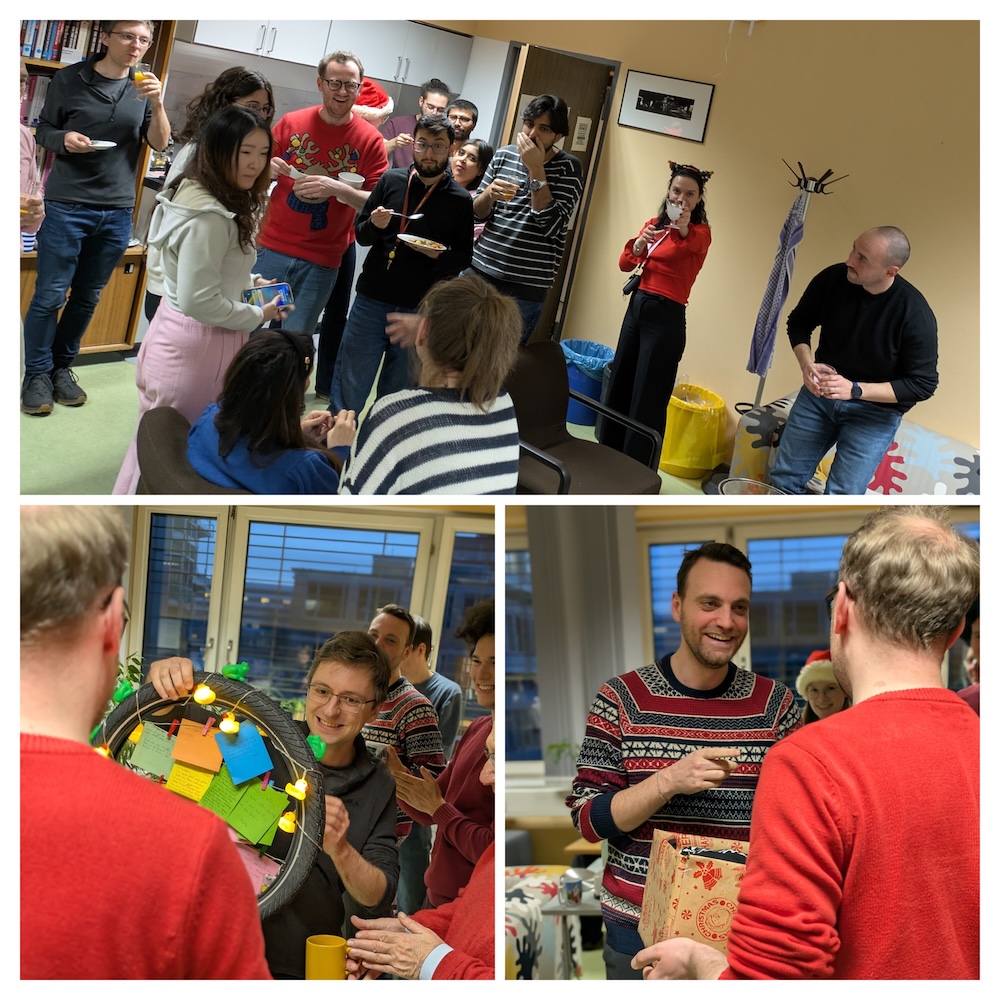
The end of the year is near again.
Today at TKN, we celebrated a successful 12 months reading and writing interesting papers, being part of inspiring teaching moments and meeting amazing new colleagues.
We enjoyed a relaxed celebration and are grateful for our amazing team.
Now, we wish all of our friends, collaborators, and followers a wonderful Christmas time, a good end to the year 2025 and a Happy New Year!
- December 12, 2025

The DFG SPP Resilient Worlds co-organized the Workshop on Resilience in Next-Generation Wireless Communication Networks, held in conjunction with IEEE GLOBECOM 2025 in Taipei, Taiwan.
The workshop featured 14 engaging presentations from the authors of accepted papers, complemented by a keynote talk on Next-Generation Vehicular Networks: Resilience, Twins, and Artificial Intelligence.
- December 11, 2025

Our team member Osman Tugay Basaran presented our paper GNN-ATIVE: An AI-native, Graph-based Orchestrator for Next-Generation Wireless Networks at the IEEE Global Communications Conference (GLOBECOM 2025), which was held in Taipei, Taiwan.
In this work, we introduce GNN-ATIVE, an AI-native orchestration framework that leverages Graph Neural Networks (GNNs) and knowledge graphs (KGs) in a unified graph-based paradigm for network management. GNN-ATIVE uses a semantic knowledge graph to represent the network's state and context, employing standard ontologies to ensure consistency and interoperability.
- December 06, 2025

Our team member Osman Tugay Basaran recently had the opportunity to present our paper XAI-on-RAN: Explainable, AI-native, and GPU-Accelerated RAN Towards 6G at the 39th Conference on Neural Information Processing Systems (NeurIPS'25), Workshop on AI and ML for Next-Generation Wireless Communications and Networking (AI4NextG 2025), San Diego, CA, USA.
In this work, we present an architecture that brings Explainable AI (XAI) into the radio access network (RAN) control loop, coupled with GPU-acceleration (NVIDIA Aerial-class compute) to achieve low latency, transparent, and adaptive behavior in the AI-native RANs.
- December 04, 2025

Julian successfully defended his PhD on December 4, 2025.
His dissertation is titled Advancing Cooperative Driving: From Information Freshness to Large-Scale and Personalized Platooning.
He was awarded a Dr.-Ing. degree from TU Berlin.
(link to more information)













